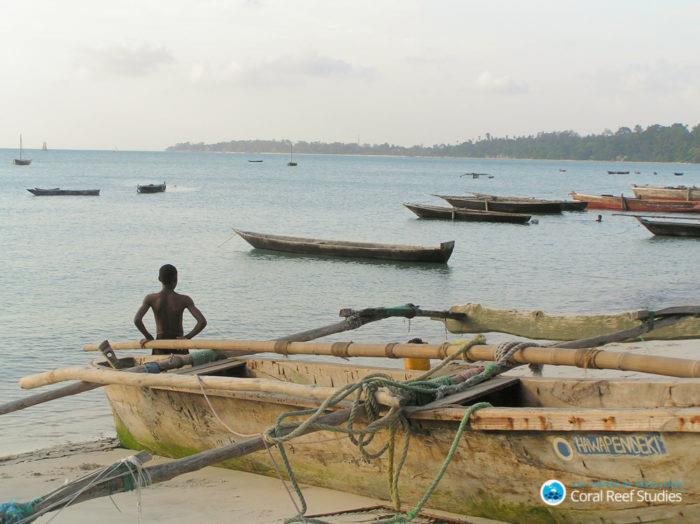
Friends matter in climate change response
by Dr Michele Barnes 8 Dec 2018 09:11 UTC

A Kenyan fisherman looking out to the sea © ARC CoE for Coral Reef Studies / Joshua Cinner
A James Cook University scientist is investigating how people's social networks prompt them to take action on climate change – or discourage them from doing so – in an attempt to help communities and government adapt in response to calamitous predictions of global warming.
Dr Michele Barnes, Research Fellow at JCU's ARC Centre of Excellence for Coral Reef Studies, is leading the project.
Dr Barnes said that the relationships we have with others – our social networks – can profoundly influence our behaviour and our capacity for action.
"What our friends and acquaintances think, say and do can have important effects on our thoughts and actions. Yet while these connections can be reliably mapped, understanding how they prompt action in response to climate change is still in its infancy."
"It's usually assumed that capacity to act automatically translates into action, but that's not necessarily true. So, I'm aiming to uncover the key social factors that help or hinder action. This will be the first study to track individuals and a governance institution both before and after a coral bleaching event," she said.
The research will focus on the Great Barrier Reef and communities based around reefs in Kenya.
"The project will significantly improve our understanding of how adaptive capacity – the ability of a system to adapt when its environment is changing – translates into adaptive action, or how it fails to do that."
Dr Barnes said that even under the most optimistic greenhouse gas emissions scenario from the Intergovernmental Panel on Climate Change, the future of biodiversity and ecosystems is under serious threat and that researchers needed to look at how both people and institutions will react.
"Considering the scope and intensity of climate change, it's vital people can make informed decisions to reduce their vulnerability. Likewise, building flexible governance institutions with the capacity to adapt is crucial."
Dr Barnes said national and local governments, development agencies, and non-governmental organisations urgently need the knowledge the research will produce.
"Without a thorough understanding of what aspects of social networks translate into adaptive action, and the role of powerful groups and individuals in shaping these outcomes, their efforts risk being unproductive or harmful," she said.
Dr Barnes has been awarded $370,000 for the three-year project through an a Australian Research Council Discovery Early Career Researcher Award.